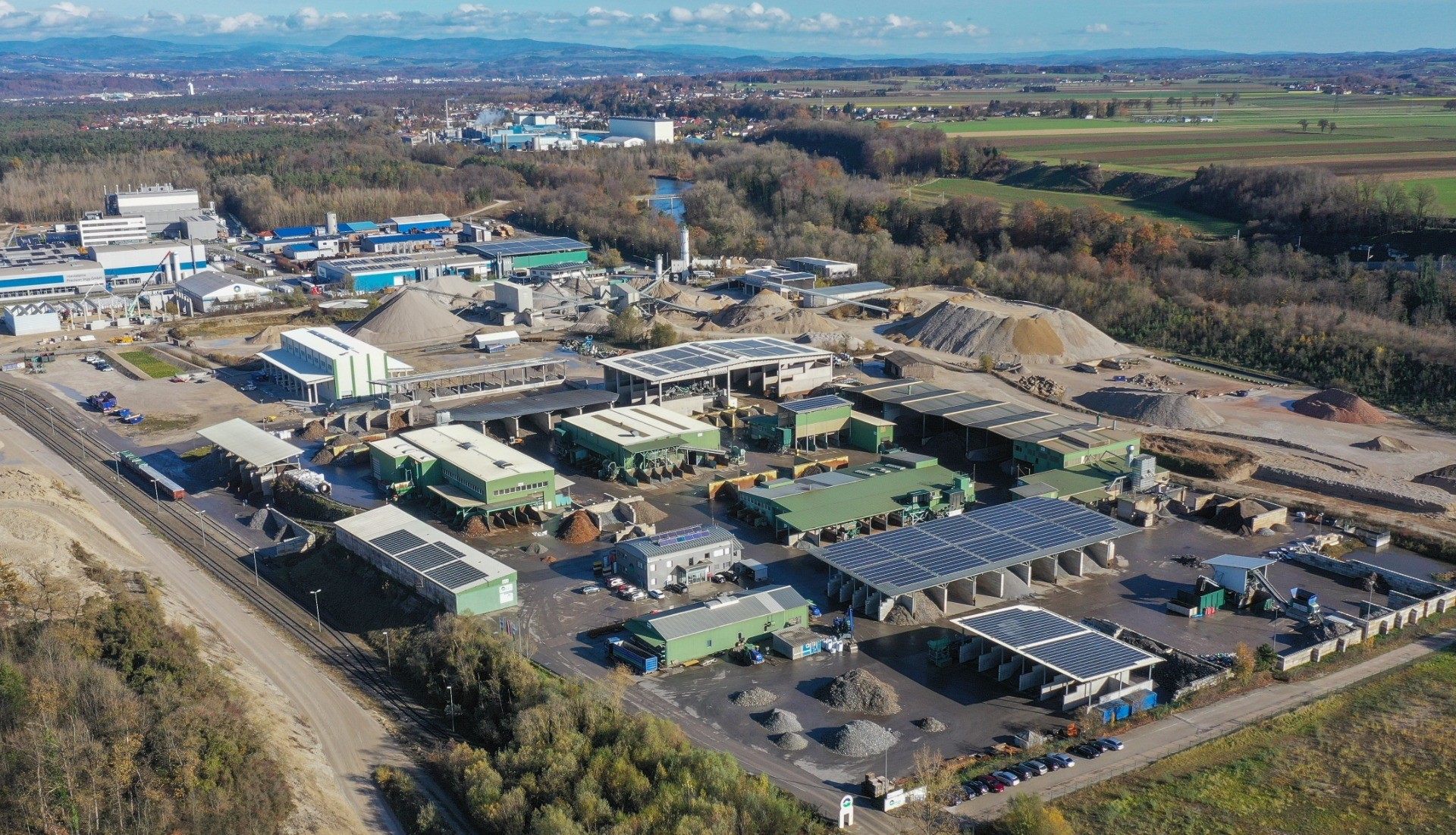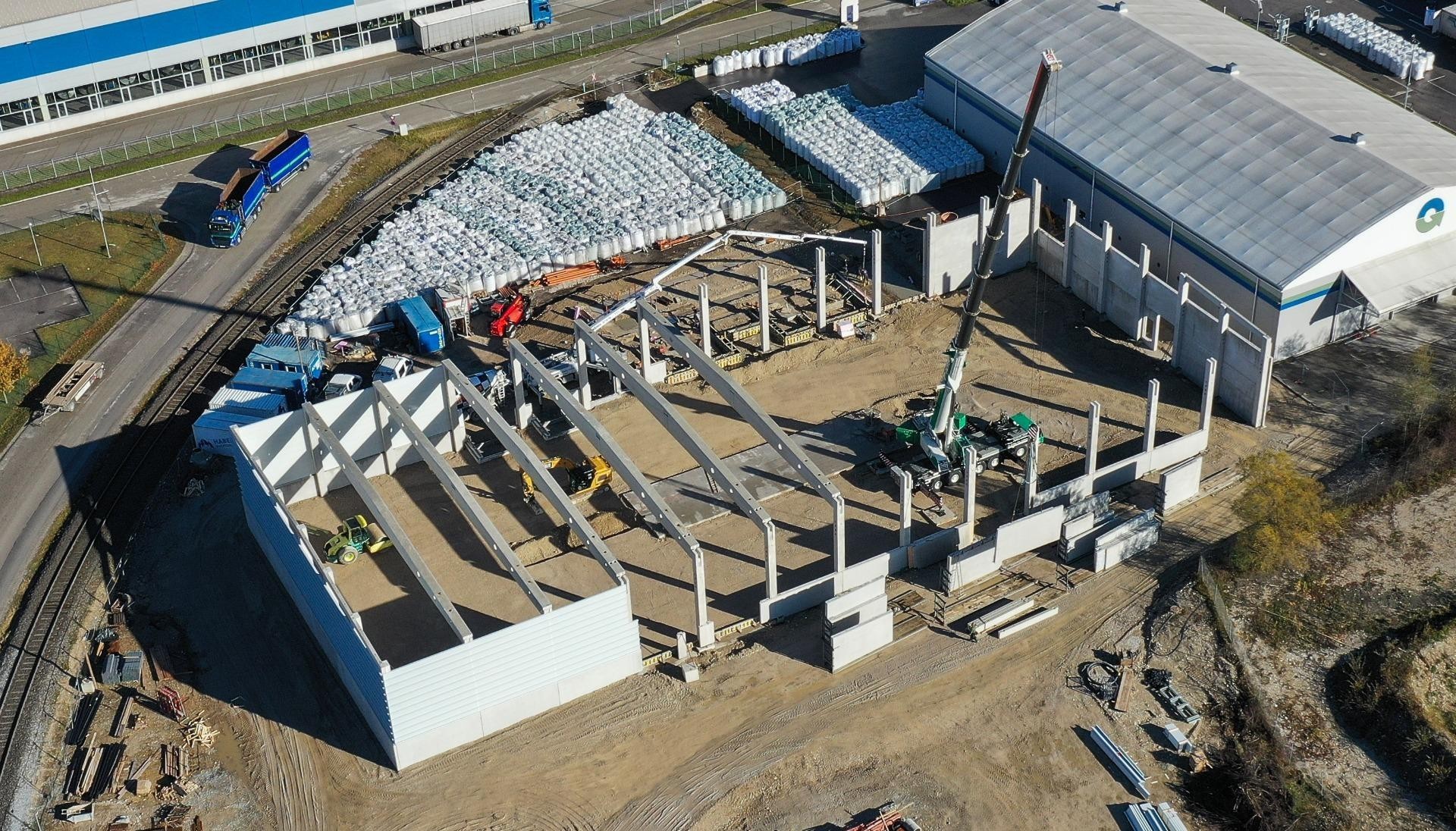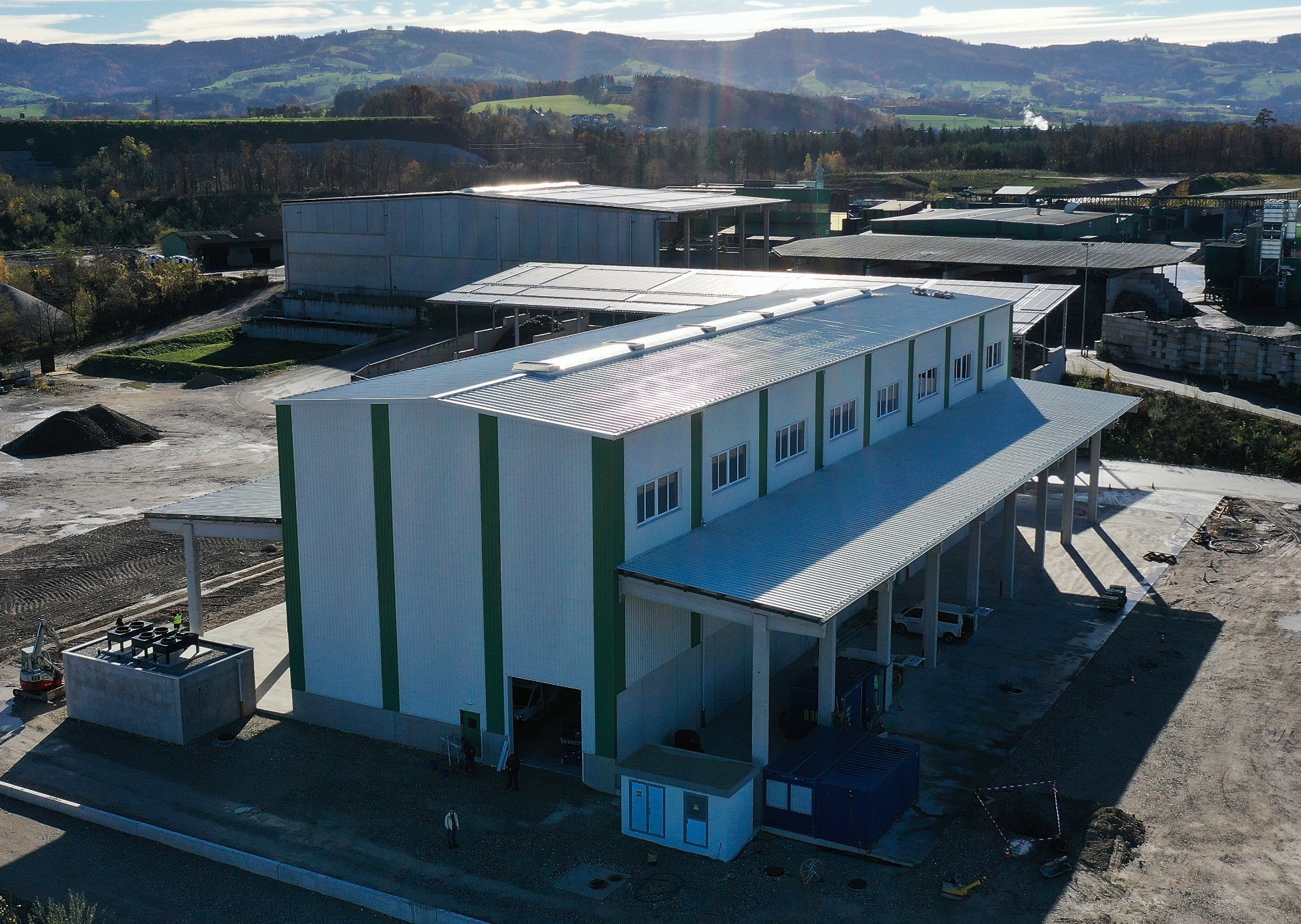VISIONS AND NON-CYCLICAL EXPANSION
The challenges posed by the current economic situation are also keeping the Müller-Guttenbrunn Group busy. Discussions about full warehouses and price problems were not only on the agenda at FAKUMA 2023. The company is also facing up to the current difficult economic phase internally. However, this phase should not be confused with permanent changes. The focus therefore remains on the future. And that is precisely why investments are being made right now.
The Müller-Guttenbrunn Group is responding to the current global economic situation with acyclical investments and expansions, and the outlook for the future is correspondingly positive: "We must not make the mistake of only looking at the economic phase and overlooking the permanent changes," explains Günther Höggerl, Managing Director of MGG Polymers. "Plastic has found its place in the world of materials and will continue to do so. The recycling and reuse of plastics still has huge potential compared to other materials," says Höggerl, painting a positive picture of the future.
Gunther Panowitz, Managing Director of MGG Metran, echoes this sentiment. "We have no reason to bury our heads in the sand, quite the opposite. We have great visions that are ready to be realized. That is why we are continuing on our chosen path towards the future".


Conversions and new buildings. Reorganization and restructuring.
MGG Polymers, the competence center for plastics recycling, is pursuing a multi-year investment program, internally called "Growth Strategy 2030". Only around 9% of the plastics used worldwide are currently recycled. MGG Polymers is working relentlessly to increase this rate. Of course, the Kematen-based pioneers in the circular economy also assume that recycling rates will increase significantly in the future. This and the increasingly diverse requirements of Polymers' customers mean that larger capacities will be necessary in the future.
MGG Polymers already produces around 60 customer-specific product types with its compounding systems - by adding various additives to the respective base plastic. In order to be able to maintain delivery capability with this wide range of products, a corresponding stock level is required, which in turn requires space. "We have been aware for some time that we need to restructure and improve our premises," explains Günther Höggerl. "We need more space for recycling and compounding, but also storage space for our products in order to be able to guarantee our customers security of supply for all plastics."
We are currently working on the necessary framework conditions for more recycling. To improve internal processes, the volume flows (incoming and outgoing material) within the company premises are being reorganized and additional storage space is created. The first construction activities for a new distribution center on the MGG Polymers site have already begun. The new center will be ready for occupancy in spring 2024. This will make it possible in future to make do without externally rented storage space, as is currently the case. A number of loading silos will also be built for the delivery of products to customers by silo truck. The four compounding lines (extruders) currently in use will also be expanded in 2024.
At the end of the day, it's the overall package that counts
"MGG Polymers is characterized above all by the fact that we offer a complete package, not just plastic granulate in a container. We have been providing our customers with factory test certificates and many other certificates for years, we provide support with further processing on the machines and offer special quality aspects," says Höggerl, proud of what has been achieved. "Ultimately, this is what sets us apart from other suppliers."
Similar challenges at Metran
The second Müller-Guttenbrunn company in Kematen - MGG Metran - also needs more space. As part of a total investment package of 10 million euros, an additional hall with a floor area of 2,000 m² and a height of around 15 meters was built in autumn 2023. PV panels with a total output of 600 kilowatt peak will be installed on the new "Hall 10" to ensure sustainable energy generation. In addition, the heating system will be activated by heat pumps. Construction work on the hall is in full swing. "We expect to be able to start installing our machines in the middle of next year," says Gunther Panowitz, Managing Director of MGG Metran. 50% of the newly created space has already been planned, as a new composite processing plant is to be installed in Hall 10, which is scheduled to go into operation in December 2024. "This plant will be able to detect much smaller particles than the machines we already operate. The smallest is 0 to 0.2 mm," says Gunther Panowitz, looking forward to expanded separation options.

The new wonder weapon
Machines and systems are also being regrouped in MGG Metran's existing halls in order to achieve greater efficiency. Infrastructure such as electrical systems have to be adapted or newly installed, for example a third transformer. And there are other systems and machines that have been put into operation or will be in the near future, including an X-ray fluorescence separation system for grain sizes from four millimetres. "We will be particularly efficient in the treatment of aluminum sandwich panels, for example," explains Metran Managing Director Panowitz. If everything goes smoothly, the system will be in continuous operation 24 hours a day, 7 days a week.
Next Level: Artificial Intelligence
The use of artificial intelligence is still a dream of the future for Gunther Panowitz, but it is certainly conceivable. "Machines with cameras that work in a similar way to the human eye would take us another step forward. We would make room for sorting robots of this kind in our halls," says Panowitz, immediately forging a new plan. Because: That's how it works at MGG!
